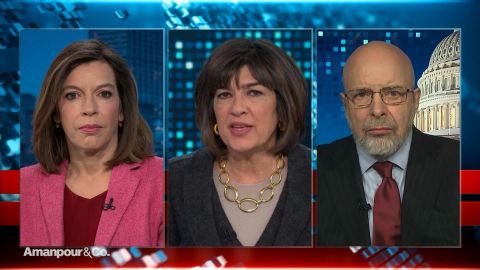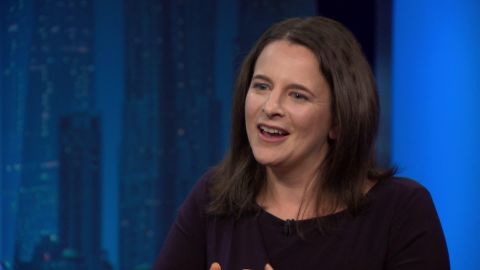Read Transcript EXPAND
CHRISTIANE AMANPOUR: First of all, he is the first Republican nominee. So, I don’t know whether everybody knows that the Republican Party, you know, was so new right then. And then, also, his wife was so important. Explain the dynamics between Republicans and the other party, and then the role of women. I mean, now, OK, we’ve seen Hillary Clinton, really powerful first lady —
STEVE INSKEEP, CO-HOST, NPR’S MORNING EDITION: Yes.
AMANPOUR: — and then in her own right. Michelle Obama, really powerful first lady. But then it wasn’t so much.
INSKEEP: Not at all. Women, of course, had gender roles that were much more limited. But the emergence of Jessie as a character and women more generally at that time and the creation of the Republican Party are connected. In the early years of American politics, slavery did exist in a bunch of states in the south. And if you wanted to have a national political party that was viable, you needed to accommodate what was called the slave power. You needed to be pro-slavery or at least keep your mouth shut. The Republican Party was founded in the 1850s on the idea that the north had become so populous that they might be able to win a presidential election with northern votes alone, which meant they could be anti-slavery. They weren’t actually for abolition at the beginning, that was considered extreme, but they were against the expansion of slavery. And so, they captured a lot of energy in the country in 1856 when they ran their first presidential candidate. Women had not been allowed to be in politics up until now, but they were allowed to take on what was called a benevolent cause. And a lot of women took that opportunity, grabbed that loophole in order to speak out against slavery. They were a big part of the anti-slavery movement. And when the Republican Party nominated John C. Freemont as their first candidate, Jessie Fremont who was prominent herself, the daughter of a United States senator, was taken up as a kind of symbol of their cause. She was a southerner from a slave-owning family, whose mother had turned against slavery and had translated her views to Jessie. And in a way that was unprecedented at the time, people would go to the Fremont House by the thousands and demand to see the candidate, they would ask him to come to the balcony, but when he came and waved and went away again, they weren’t satisfied and they would shout for Jessie to come out, too.
About This Episode EXPAND
Experts Evelyn Farkas and Dimitri Simes analyze the impact of President Trump’s impeachment trial on U.S. relations with Russia, Steve Inskeep tells the story of America’s first political power couple and former White House speechwriter Sarah Hurwitz explains what Judaism can teach us in these divisive times.
LEARN MORE


